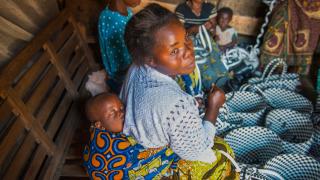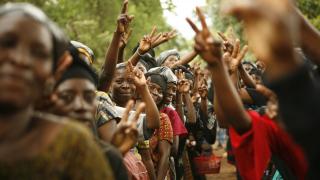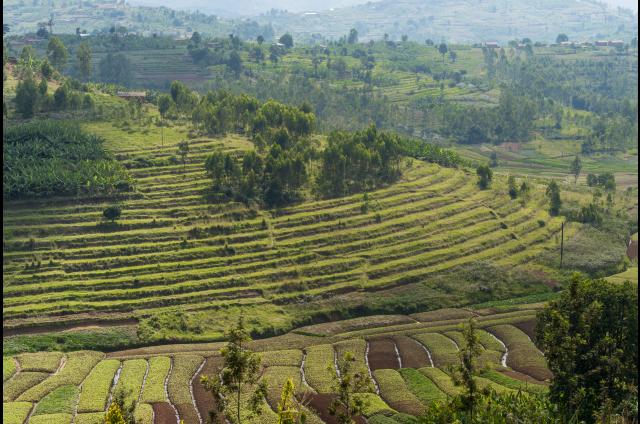Women's Access to Land in Eastern DRC
Why it matters
Globally, women represent almost half of agricultural workers, but only a fifth of land owners.
Women for Women International has worked with over 91,000 marginalised women in Eastern Democratic Republic of Congo (DRC). While the women we work with have reported some progress in their earnings after graduating from our core programme, with their average daily income tripling from $0.53 at enrolment to $1.87 two years after graduation, they told us that they continue to face significant barriers in accessing land.
With funding from the UK government's Department for International Development (DFID), we recently commissioned research to look into these barriers and how they can be overcome.
The 2015 study found that national laws and policies had little impact on the rural women with whom we work. Instead, ‘traditional’ or customary laws and practices have the biggest influence as unwritten rules that guide beliefs and behaviours in communities. These norms tend to discriminate against women, undermining their secure access to land and enforcing women’s dependence on men (husbands or male relatives) who have rights to land. Most women therefore depend on a male relative's owned or rented land under ‘traditional’ frameworks.
Fundamental for women's rights
Improving women’s access to land is fundamental for women’s rights and Eastern DRC’s broader development.
This key issue needs to be integrated into addressing the conflict as it plays a huge part in connecting land, power and identity. In parallel to this, greater support for DRC’s women farmers is needed to help them support their families and to challenge the discrimination that provides the foundation for the barriers to accessing land.

Crucial for families
In many rural communities, families are dependent on agriculture both for feeding themselves and earning an income. Globally, women represent almost half of agricultural workers, but only a fifth of land owners (UN FAO).
The UN estimates that 19% of women own legal titles to land globally, but this reduces to 9% in conflict and post-conflict countries. Improving women farmer’s productivity is therefore not only crucial to support their ability to support themselves and their families financially, but also to feed the family from the harvest.

The Global Goals
Women’s rights to land and other property (including through inheritance) is such an important part of gender equality that it has been included as a target under Sustainable Development Goal 5: Achieve gender equality and empower all women and girls.

